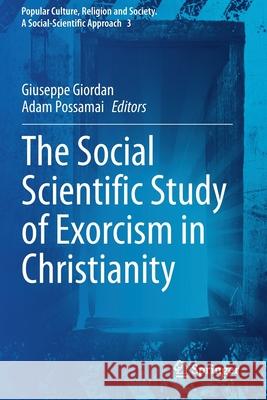The Social Scientific Study of Exorcism in Christianity » książka
topmenu
The Social Scientific Study of Exorcism in Christianity
ISBN-13: 9783030431754 / Angielski / Miękka / 2021 / 244 str.
The Social Scientific Study of Exorcism in Christianity
ISBN-13: 9783030431754 / Angielski / Miękka / 2021 / 244 str.
cena 483,04
(netto: 460,04 VAT: 5%)
Najniższa cena z 30 dni: 462,63
(netto: 460,04 VAT: 5%)
Najniższa cena z 30 dni: 462,63
Termin realizacji zamówienia:
ok. 16-18 dni roboczych.
ok. 16-18 dni roboczych.
Darmowa dostawa!
Kategorie:
Kategorie BISAC:
Wydawca:
Springer
Seria wydawnicza:
Język:
Angielski
ISBN-13:
9783030431754
Rok wydania:
2021
Wydanie:
2020
Numer serii:
000798482
Ilość stron:
244
Waga:
0.36 kg
Wymiary:
23.39 x 15.6 x 1.37
Oprawa:
Miękka
Wolumenów:
01
Dodatkowe informacje:
Wydanie ilustrowane











